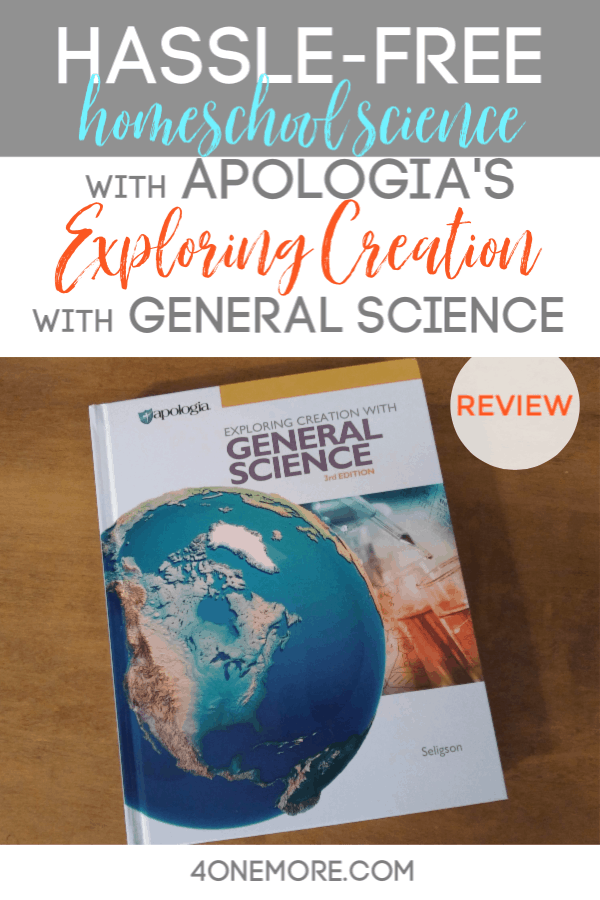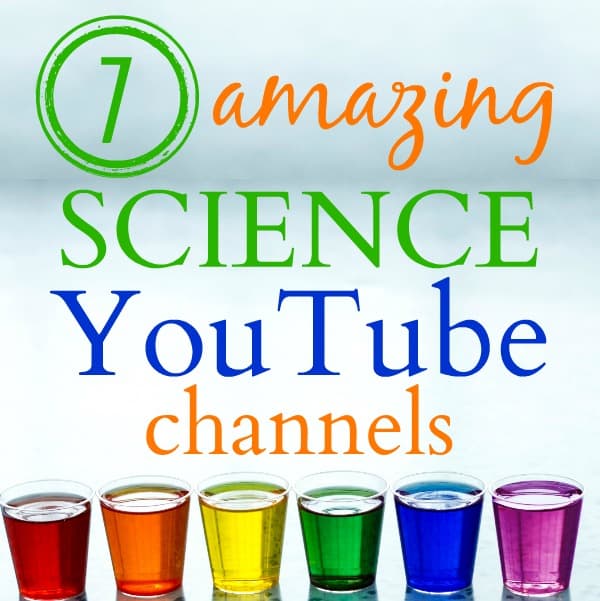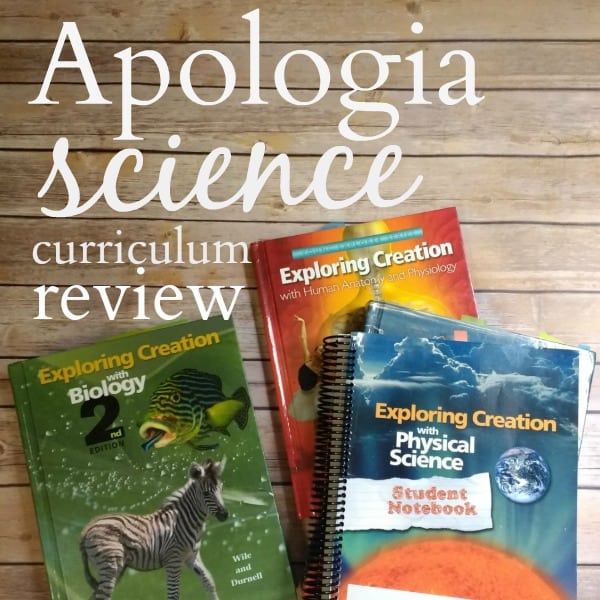If you’re a homeschooling mom who feels less-than adequate in the science department, then never fear! You’re not alone (I’m right there with you) and there are dozens of awesome science resources that will take the pressure off your shoulders in your homeschool. If you need homeschool science help, then this post is for you!

My posts contain affiliate links.
What is the goal of science in the homeschool?
I know that I will not be able to teach my kids everything in a content area in the K-12 years. So what should my goal be? Here are several to consider:
- inspire a love of learning
- encourage curiosity with the world around them
- learn how to learn new things
- learn the grammar of science (building blocks, foundations, scientific method)
- learn how to apply the grammar of science
- exposure to many fields of science
Can you resonate with these goals? If so, then here are some practical ideas you can use for science education in your homeschool.
Here’s my criteria for including these resources:
- reasonably priced
- reusable with multiple kids
- easy for mom to implement (open & go)
- written with the homeschool student in mind (not written for a traditional classroom)
Ideas for K-8 Science
For many years, we used Answers In Genesis God’s Design curriculum with multiple age levels and it worked pretty well. Written for grades 3-8, it is easy to implement and has plenty of hands-on ideas and activities. Four topics are included in their series: Heaven & Earth, Physical World, Chemistry & Ecology, Living Things. Each topic could take one full year, giving you four full years of science to cycle through.

Find lesson plans available for this product at Homeschool Planet. Sign up for a 30-day FREE trial.
Check out our Review of Apologia Botany for kids in grades K-6.
With my youngest child, now in first grade, we will cover science education for the next several years mainly with unit studies. We started the year learning about insects, now we’re onto weather, and with the changes in leaves this fall, learning about trees would be perfect.
There are so many wonderful unit studies available for homeschoolers! Here are some of our favorites:
UnitStudy.com >> they have weekly specials all year long!!

25 Unit Studies for Homeschoolers
The Joy of Discovery: How To Teach with Unit Studies
And when grandparents, aunts, and uncles ask for gift ideas for your kids, send them links from Amazon for fun science kits!
In the middle school years, I would suggest transitioning to Apologia curriculum. We’ve used General Science with the student notebook to transition into a note-taking upper-level-expectations course.
We’ve also tried out some online elementary science courses, so I’ll link to the reviews so you can see if they’d be a good fit for your kids. They require yearly subscription fees, so it’s not a pay-once and pass on to all the other kids type of resource. But, for the visual learners who love video and eclectic learning experiences, these courses might be a great choice.

Find lesson plans available for this product at Homeschool Planet. Sign up for a 30-day FREE trial.
Finally, a great Science Encylopedia spine will be an asset all the way from K-8, no matter which curriculum you choose.
Or, you might not even need a science curriculum if you just want to work off of hands-on projects, reading a ton of books on a particular subjects, watching videos, and note booking. Science education doesn’t have to be complicated!
Ideas for 9-12 Science
In 9th-12th grades, you really do need to get more serious with tracking scores and making sure the transcript is meeting graduation and future educational requirements.
Most high schoolers will want to take these upper-level science courses:
- Biology
- Chemistry
- Physics
You can also add Earth Science, Health & Nutrition, Astronomy, or Marine Biology to fit the needs and interests of your teens. The beauty of homeschooling is that it’s all customizable to YOUR kids.

Our homeschool has settled in with Apologia curriculum for the high school level. Here are the benefits I see with this choice:
- appropriately priced
- written to the student
- intended to be done independently
- experiments use common house-hold products
- student notebook provides great structure and accountability
- tests assess for understanding, not just rote memorization of facts (Even my dyslexic son can do well on these tests, because he really does understand the underlying scientific issues. However, if these tests were “normal” factual tests, he would not do well at all.)
- Christian worldview
- challenging & rigorous
So take it from me – a homeschool mom who didn’t have a terrific science education herself, but is finding these resources to be just the right tools to craft a great K-12 science education for my kids. You can do it too!
Homeschooling 8-12 Year Olds: A Conversation with Julie Polanco – HWM #87



Thank you for all of your information!
Please enter me into the draw.
You can log in the Rafflecopter entry card in this post and then enter into the giveaway.
Homeschooling is the best decision our family ever made. Thank you for helping make it possible!
I hope I am signing up in the right place for the apologia curriculum for high school. It’s a pleasure to always read your messages. I find inspiration in them. I must say I give you lots of credit 💪for all your hard work. Ever since I started homeschool it had changed my life and had fought me so many great things. Thank you for always caring and charing your life with us. Sending my love and blessings.
Rebeca